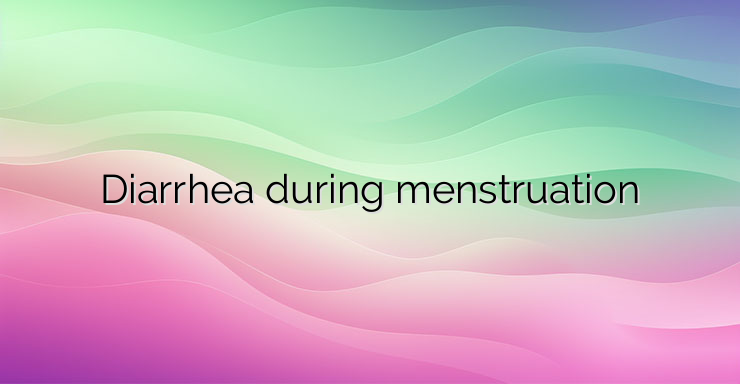Diarrhea during menstruation is a normal symptom, which is due to the secretion of prostaglandins. Hormones that stimulate uterine contractions could affect the gastrointestinal tract. Prostaglandins cause contractions that help the lining separate from the uterus. Sometimes they could also stimulate contractions in the intestines, leading to a range of gastrointestinal symptoms, including diarrhea. However, not all women experience diarrhea during menstruation. Before menstruation, the cells in the lining of the uterus increase the production of prostaglandins. This increase in prostaglandins stimulates contractions in the muscles of the uterus, which causes the lining of the uterus to shed. With the production of a greater amount of prostaglandins, the contractility of the uterus is enhanced. Excessive production of these hormones, on the other hand, can lead to menstrual cramps and pain. When prostaglandin levels are high, some of them could enter the bloodstream. They then reach various parts of the body, including the intestines. The intestines have a smooth muscle lining similar to the uterus. High levels of prostaglandins could stimulate intestinal muscle contractility and subsequent release of their contents, leading to diarrhea. Higher levels of prostaglandins could also cause other symptoms such as headache, nausea and vomiting. Apart from pain and discomfort, excessive amounts of prostaglandins do not pose a significant risk to a woman’s health. How to deal with menstrual diarrhea? Diarrhea associated with menstruation is treated like any other acute diarrheal episode. During this period, fluid intake is extremely important to prevent dehydration. Avoiding foods known to worsen diarrhea is also recommended. These are foods with artificial sweeteners, caffeine, dairy products, spicy foods, as well as very sweet foods. In severe discomfort and inability to deal with diarrhea, it is possible to take medicinal products that improve gastrointestinal disorders, such as Loperamide (Imodium). In case of severe discomfort and spasms, it is recommended to take analgesics to relieve pain, such as ibuprofen. Excessive stress and anxiety could also worsen various menstrual symptoms, including cramping and diarrhea. For this reason, reducing these emotions and maintaining good physical activity could alleviate the discomfort. Sources: https://www.healthline.com/health/diarrhea-during-period#treatment https://www.medicalnewstoday.com/articles/diarrhea-during-period#causes


Leave a Reply